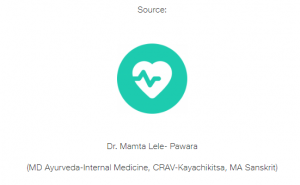In the diverse tapestry of Indian culture, one thread runs remarkably strong – the love for chai, a beverage that transcends socio-economic boundaries and unites millions over a steaming cup. However, the addiction to chai tea in India is not merely a cultural quirk; it has significant implications for health, especially when factors like AGEs (Advanced Glycation End Products) and added sugar are brought into the brew.
Chai, a concoction of black tea leaves, spices, and milk, has become an integral part of daily life for many Indians. The caffeine content in tea provides a morning pick-me-up, while the spices like ginger and cardamom add a dash of flavour and purported health benefits. However, the allure of this aromatic elixir comes with a hidden cost, both nutritionally and health-wise.
One major concern is the AGEs formed during the preparation of chai. AGEs are compounds that result from the reaction between sugars and proteins or fats, and they accumulate in the body over time. The process of boiling tea leaves with milk, a common practice in India, promotes the formation of AGEs. High levels of AGEs have been linked to various chronic conditions, including diabetes, cardiovascular diseases, and neurodegenerative disorders.
Moreover, the health benefits associated with tea – particularly its antioxidant properties – may be compromised by the addition of milk. Tea polyphenols, such as catechins, are known for their antioxidant properties. However, when milk is added, it may bind to these polyphenols, reducing their bioavailability and potentially diminishing the positive effects on health.
Another worrisome aspect is the prevalence of added sugar in chai. The sweet tooth of many chai enthusiasts often leads to the inclusion of excessive sugar, turning a seemingly innocent beverage into a calorie-laden concoction. Excessive sugar consumption is a well-established risk factor for various health issues, including obesity, type 2 diabetes, and cardiovascular diseases.
It’s essential for chai lovers to be mindful of the ingredients they incorporate into their daily brew. Opting for unsweetened chai, without milk or with minimal added sugar, can help mitigate the potential health risks associated with excessive sugar intake and AGEs formation. Embracing the true essence of tea by savouring its natural flavours and harnessing its antioxidants is key to maximizing its health benefits.
In conclusion, while the addiction to chai tea in India is deeply rooted in cultural and social practices, it’s crucial to be aware of the health implications associated with certain preparation methods. Balancing the rich tradition of chai with a mindful approach to ingredients can help preserve the essence of this beloved beverage without compromising on health. After all, a harmonious blend of tradition and health-conscious choices can make that daily cup of chai a truly enriching experience.

